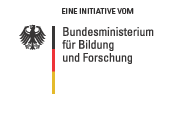Sven Kerzenmacher: Bioelectricity from blood sugar and sewage sludge
-
 <ic:message key='Bild vergrößern' />
<ic:message key='Bild vergrößern' />
- In 2009 Sven Kerzenmacher from the Institute for Microsystem Technology was awarded the 2500-euro VDE/VDI-Society Microelectronics, Microsystems and Precision Engineering (GMM) Prize. Quelle: IMTEK
08.02.2012 -
Pacemakers that derive their energy from blood sugar instead of batteries has been a dream of medicine for decades. In his doctoral studies, Sven Kerzenmacher is occupied with biofuel cells, which are one day set to replace lithium batteries as the source of energy for pacemakers. The Freiburg-based chemical engineer is also an expert in other types of power generation. In a further research project, Kerzenmacher is working on using bacteria to extract electricity from the waste stream of sewage treatment plants.
At the beginning of his university studies, Sven Kerzenmacher would never have thought that he would one day end up in basic research. In Offenburg, he enrolled for Process and Environmental Engineering, with the hope that he would stay close to real-world applications. There, he soon succumbed to the "magic" of fuel cells. Alternative energy sources was already a central topic during his degree dissertation at the Fraunhofer Institute for Solar Energy Systems in Freiburg. After completing his master's degree, in 2002 he earned his doctorate at the University of Texas in Austin. The subject was novel materials for use in high-temperature fuel cells. He was very happy in Austin, says the researcher. Above all, he was positively surprised by the liberality of the city.
Blood sugar as a fuel
Today, not far from his birthplace in Breisgau, at the Institute for Microsystems Technology (IMTEK) at the University of Freiburg, Kerzenmacher heads a working group that deals with two very different types of biofuel cells. One is focused on extracting electricity from blood glucose. This could, for example, be used to power a pacemaker. The principle is similar to a battery, only this consists of two electrodes that are made of platinum for compatibility reasons. The glucose dissolved in the body's tissues releases electrons at the anode. These pass as electrical current through the cardiac pacemaker, before being delivered into the oxygen in the tissue fluid at the cathode.
This works very well with artificial glucose solutions, says Kerzenmacher. At this time, however, the amino acids that are also present in blood and tissue fluid are a cause of puzzlement. "The amino acid molecules are similar in size to the blood sugar molecules, which means we can't filter them out. They clog the anode, and thus prevent the glucose from releasing electrons." Getting around this phenomenon is currently the biggest challenge. If and when this is cracked, the next stage will be to test the lifetime and biocompatibility of the glucose fuel cells. "They should stay in the body for years, where they should function properly without causing harmful reactions." In other words, it's a long-term research project, says Kerzenmacher: "It will probably be another ten or twenty years until such systems are actually operational."
Bacteria to compete with power giants?
His other priority research area is the generation of power from wastewater using microbial fuel cells. The first pilot plants employing this approach are already in operation, including in Australia. Kerzenmacher's working group is developing new materials and concepts towards more efficient biofuel cells, which are durable and inexpensive. The principle is straightforward: "We use bacteria with a unique metabolism: These feed on substances from waste water, releasing electrons in the process that are normally transferred to oxygen." These bacteria are situated on graphite anodes, where they pass on their electrons. As with the body's fuel cells and oxygen, electrons are absorbed at the cathode. It won't be able to supply a whole city with electricity, says Kerzenmacher, but a treatment plant could well to meet its own electricity requirements. "It sounds modest, but it's no mean feat: treatment plants typically have very high electricity bills."
| More on this subject on biotechnologie.de |
| Funded Projects: Pure biogas from deepwater conditions |
Kerzenmacher is enthused about the interdisciplinary nature of his work. He calls himself a chemical engineer; his colleagues are physicists, biologists, chemists, and biotechnologists. "It's not always easy to find a common language, but we learn a lot from each other. Such projects as the microbial fuel cells project, for example, can barely be developed by one discipline alone."
Work allowing, he enjoys being in nature in his spare time, as well as sailing and mountain biking. Freiburg's cultural scene also has him excited, especially the smaller jazz and alternative clubs. "These days there seem to be loads of relatively unknown bands playing round here, and I always like to find something fresh." The same could certainly be said of his scientific endeavours.




